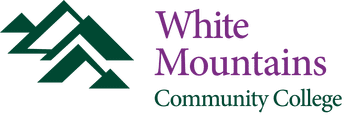By BRENNAN BARNARD | 1/11/2021
From the Varsity Blues scandal to the impact of the pandemic, if the past few years in college admission have taught us anything, it is to expect the unexpected. It is that simple, and that complicated.
If I had told you in December of last year that you could apply to UCLA, Yale, Vanderbilt, or hundreds of other schools (highly selective and less so) without standardized test scores, you probably would have laughed.
Just like some people would have scoffed if I suggested they would apply to, and enroll at, a college sight unseen. Well, we know how that story ends.
Therefore, trying to anticipate exactly what this year will bring is a fool’s errand. Since I can often be foolish, here are some predictions with a little help from my friends, both far and near:
Jerry Lucido is a professor of practice and associate dean of strategic enrollment services for the University of Southern California’s Rossier School of Education. He is also executive director of the USC Center for Enrollment Research, Policy and Practice, where they study everything admission-related. He points out that “many of the analytics that admission offices use to predict enrollment and to make admission decisions are in flux.”
“Testing is optional at best and missing in most files. The ability to travel to and experience campuses is highly limited. Activities records are more difficult to assess,” he said. “This means that the strength of the curriculum completed and the grades achieved, always the most important factors in admissions, will play an even stronger role.”
With other factors being difficult to assess, he predicted that “all but the most highly selective colleges will hedge their bets and open the doors wider. The less selective the school, the farther open the door will swing. Families that can demonstrate an ability and a willingness to pay will be coveted.”
He added, “from the point of view of the public good, this opening of doors may create opportunities for some students who have been viewed as too risky in the past, but financing them will be a challenge.”
Closer to home, Paul LeBlanc, president of Southern New Hampshire University said that “the extended economic hangover from 2020 means traditional-age students of limited financial means will now flood lower-cost online programs so they can live at home, work, and better afford their education.”
This was already underway in the past months and is likely to grow.
Meanwhile, Charles Lloyd, president of White Mountains Community College, said that “after seeing a year of unpredictability from all perspectives, fall 2021 may prove to be a brighter season for community college enrollment.” He adds “of course ‘brighter’ is relative after the sector nationally was down over ten percent year-over-year in the fall of 2020.”
“My thinking is that many students chose the most popular alternative to going to community colleges this fall, which is our long-time rival: No college,” Lloyd said. “Many students chose not to attend school in favor of a gap year, assisting children with remote learning, or having to work more hours to make up for other lost household income.”
In the fall of 2021, it is expected that some of the unpredictability will be removed, though some will certainly remain as the economy slowly recovers. Lloyd anticipated “less of a year-over-year decline nationally with the hopes of even flat enrollment.”
Students who have applied to traditional bricks and mortar, four-year colleges and universities can likely expect colleges to rely heavily on waitlists this year as they attempt to manage their enrollment. This might extend admission decisions well into the summer months.
Beth Wiser, executive director of undergraduate admission at The Ohio State University said “while we are seeing a sizable increase in our completed application numbers, we know that there is a lot of uncertainty in that group … students who are seeking a broader range of options.” She said that “predicting yield [the number of admitted students who accept their offer] without typical predictors such as visiting campus and a typical application pool will be challenging.”
For high school juniors, it is even more difficult to anticipate what this year will bring. Much will depend on the impact of the coronavirus vaccines, the timeline for greater freedom, and the economy.
Jonathan Burdick, vice provost for enrollment at Cornell University, said “many of the hundreds of selective institutions who became test-optional for the pandemic will announce intentions soon that they will stay that way for longer than they had originally planned.”
These and other potential changes will unfold as admission leaders know more. One thing is sure though, the coming months will continue to require patience, resilience, and flexibility. Happy new year!
Do you have a question about college admission, the impact of the pandemic, and applications? Submit them to [email protected].
https://www.concordmonitor.com/college-guy-38261960
(Brennan Barnard is the director of college counseling and outreach at The Derryfield School and the College Admission Program Advisor at The Making Caring Common project of the Harvard Graduate School of Education. He is co-author of the book, “The Truth about College Admission: A Family Guide to Getting In and Staying Together.”)

